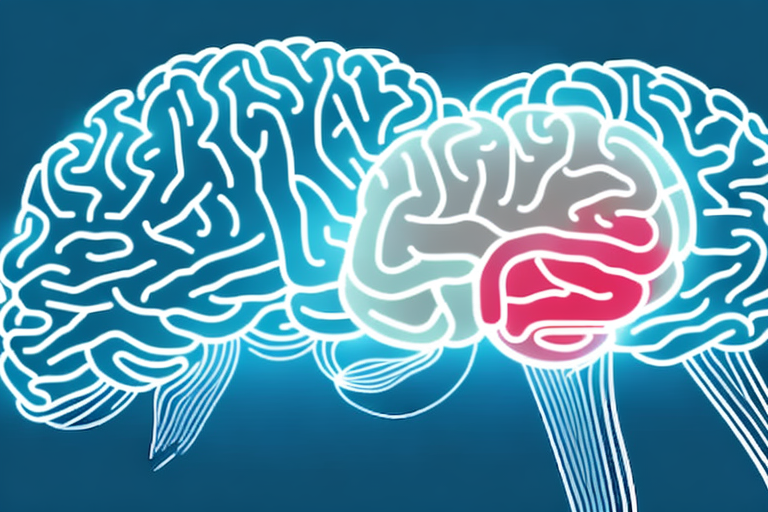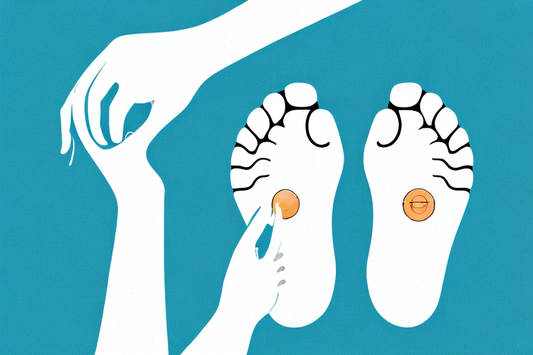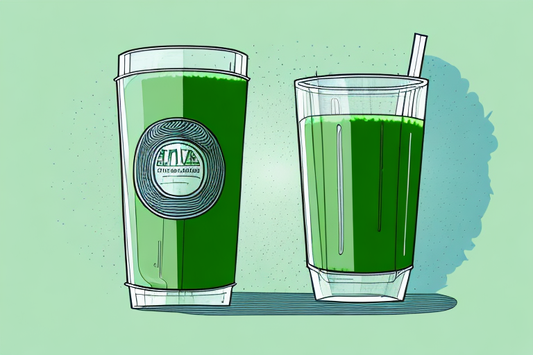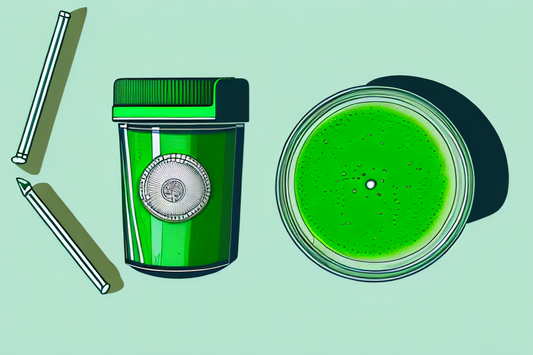
New Advances in Neuropathy Treatment: How to Get Relief from Nerve Pain
Neuropathy is a condition that affects millions of people worldwide and can cause debilitating pain and discomfort. Fortunately, there have been recent advances in treatment options that can provide much-needed relief. In this article, we will explore traditional treatments for nerve pain relief, as well as innovative therapies and procedures that have emerged in recent years. We will also discuss lifestyle changes that can help manage neuropathy symptoms.
Understanding Neuropathy and Nerve Pain
What is Neuropathy?
Neuropathy is a generic term that describes damage to one or more peripheral nerves. These nerves are responsible for transmitting signals from the brain and spinal cord to the rest of the body. When they become damaged, they can send abnormal signals, leading to pain, weakness, and numbness.
Neuropathy can be a very debilitating condition that affects millions of people worldwide. It can affect people of all ages, but it is more common in older adults. It can also be a chronic condition that requires ongoing treatment and management.
Common Causes of Neuropathy
There are many different causes of neuropathy, including diabetes, alcoholism, autoimmune diseases, and chemotherapy, among others. It can also be hereditary. However, in some cases, the cause is unknown.
Diabetes is one of the most common causes of neuropathy. In fact, up to 50% of people with diabetes may experience some form of neuropathy. This is because high blood sugar levels can damage the nerves over time.
Alcoholism is another common cause of neuropathy. This is because excessive alcohol consumption can damage the nerves, leading to pain, numbness, and tingling in the hands and feet.
Autoimmune diseases, such as lupus and rheumatoid arthritis, can also cause neuropathy. This is because the immune system attacks the body's own tissues, including the nerves.
Chemotherapy is another common cause of neuropathy. This is because the drugs used in chemotherapy can damage the nerves, leading to pain, numbness, and tingling in the hands and feet.
Symptoms of Nerve Pain
The symptoms of nerve pain can vary, depending on the type and severity of the condition. Some people may experience mild tingling and numbness, while others may experience severe pain, weakness, and difficulty moving the affected area.
In addition to pain, numbness, and tingling, some people with neuropathy may also experience muscle weakness, cramping, and difficulty with coordination and balance. This can make it difficult to perform everyday tasks, such as walking, dressing, and eating.
If you are experiencing any of these symptoms, it is important to see a healthcare provider for a proper diagnosis. They can help determine the underlying cause of your symptoms and recommend appropriate treatment options.
Traditional Treatments for Neuropathy
Neuropathy is a condition that affects the nerves and can cause pain, numbness, and tingling in the hands and feet. While there is no cure for neuropathy, there are several traditional treatments that can help manage the symptoms and improve quality of life.
Medications for Nerve Pain Relief
One of the most common treatments for neuropathy is medication. Nonsteroidal anti-inflammatory drugs (NSAIDs) can help reduce inflammation and relieve pain. Antidepressants and anticonvulsants can also be effective in treating nerve pain. However, it is important to note that these medications can have side effects, such as drowsiness, dizziness, and nausea. Additionally, not all medications are effective for everyone, and it may take some trial and error to find the right medication and dosage.
Physical Therapy and Exercise
Physical therapy and exercise can also be beneficial for people with neuropathy. These treatments can help improve mobility, reduce pain, and increase strength in the affected area. Physical therapists can work with patients to develop individualized exercise programs that may include stretching, strength training, and balance exercises. Additionally, some people with neuropathy may benefit from using assistive devices, such as braces or orthotics, to help with mobility.
Alternative Therapies
In addition to traditional treatments, some people with neuropathy may turn to alternative therapies for relief. Acupuncture, massage, and biofeedback are all examples of alternative therapies that have been used to treat nerve pain. While some people find these treatments helpful, there is not yet enough scientific evidence to support their use as a primary treatment for neuropathy. It is important to talk to a healthcare provider before trying any alternative therapies.
Overall, there are several traditional treatments that can help manage the symptoms of neuropathy. Medications, physical therapy, and exercise can all be effective in reducing pain and improving quality of life. Additionally, some people may find relief from alternative therapies. It is important to work with a healthcare provider to develop an individualized treatment plan that meets your specific needs and goals.
New Advances in Neuropathy Treatment
Neuropathy is a condition that affects the nerves and can cause pain, numbness, and tingling sensations. Fortunately, there have been many recent breakthroughs in the treatment of neuropathy that offer hope for those who suffer from this condition.
Breakthroughs in Medication
One of the most exciting developments in neuropathy treatment is the emergence of a new class of drugs called nerve growth factors. These medications work by promoting the growth and repair of damaged nerves, which can help reduce nerve pain. While these drugs are still in clinical trials and not yet available on the market, the early results are promising.
In addition to nerve growth factors, there are several other medications that have been shown to be effective in treating neuropathy. These include antidepressants, anticonvulsants, and opioids. However, these medications can have side effects and may not be suitable for everyone.
Innovative Therapies and Procedures
Several innovative therapies and procedures have emerged in recent years that can provide relief for nerve pain. One of these is nerve blocks, which involve injecting a local anesthetic into the affected nerves to block pain signals. Another is spinal cord stimulation, which uses electrical impulses to block pain signals from reaching the brain. A third option is radiofrequency ablation, which uses heat to destroy the nerves that are causing pain.
While these treatments can be highly effective, they are not suitable for everyone. Nerve blocks and spinal cord stimulation require surgical procedures, and radiofrequency ablation can cause temporary numbness or weakness in the affected area.
Technological Solutions for Nerve Pain Relief
Advances in technology have led to the development of several devices that can provide relief for nerve pain. One of these is transcutaneous electrical nerve stimulation (TENS), which uses a small device to deliver electrical impulses to the affected nerves. This can help block pain signals and reduce the sensation of pain.
Another technological solution is pulsed electromagnetic field (PEMF) therapy, which uses low-frequency electromagnetic waves to stimulate the nerves and reduce pain. This treatment is non-invasive and can be used in conjunction with other therapies.
Overall, there are many exciting new developments in the treatment of neuropathy. While there is no cure for this condition, these advances offer hope for those who suffer from nerve pain and can help improve their quality of life.
Lifestyle Changes to Manage Neuropathy
Neuropathy is a condition that affects the nerves and can cause pain, numbness, and tingling in various parts of the body. While there are medications and other treatment options available, making lifestyle changes can also be an effective way to manage neuropathy and improve quality of life.
Diet and Nutrition for Nerve Health
Eating a healthy diet that is rich in vitamins and minerals can help improve nerve health and reduce inflammation. In addition to leafy green vegetables and whole grains, foods that are high in antioxidants, such as berries and nuts, can also be beneficial for people with neuropathy. Omega-3 fatty acids, found in fish and flaxseed, can also help reduce inflammation and support nerve health.
It is also important to avoid foods that can exacerbate inflammation, such as processed foods, sugar, and saturated fats. These foods can increase inflammation and worsen neuropathy symptoms.
Stress Management Techniques
Stress can exacerbate nerve pain, so learning how to manage stress is an important part of managing neuropathy. Techniques such as meditation, deep breathing, and yoga can be helpful in reducing stress and promoting relaxation. Regular exercise, such as walking or swimming, can also help reduce stress and improve overall health.
In addition, it can be helpful to identify and address the sources of stress in your life. This may involve making changes in your work or personal life, seeking support from friends and family, or working with a therapist or counselor.
Sleep and Neuropathy
Getting enough sleep is essential for overall health and can be particularly important for people with neuropathy. Lack of sleep can exacerbate pain and other symptoms. Maintaining a regular sleep schedule and practicing good sleep hygiene can improve sleep quality.
Good sleep hygiene includes creating a relaxing sleep environment, avoiding caffeine and alcohol before bedtime, and avoiding electronic devices in the bedroom. It can also be helpful to establish a bedtime routine, such as taking a warm bath or reading a book before sleep.
In conclusion, neuropathy can be a challenging condition to manage, but there are many new and innovative treatment options available. By working closely with a healthcare provider and making lifestyle changes as needed, people with neuropathy can find relief from nerve pain and improve their overall quality of life.




